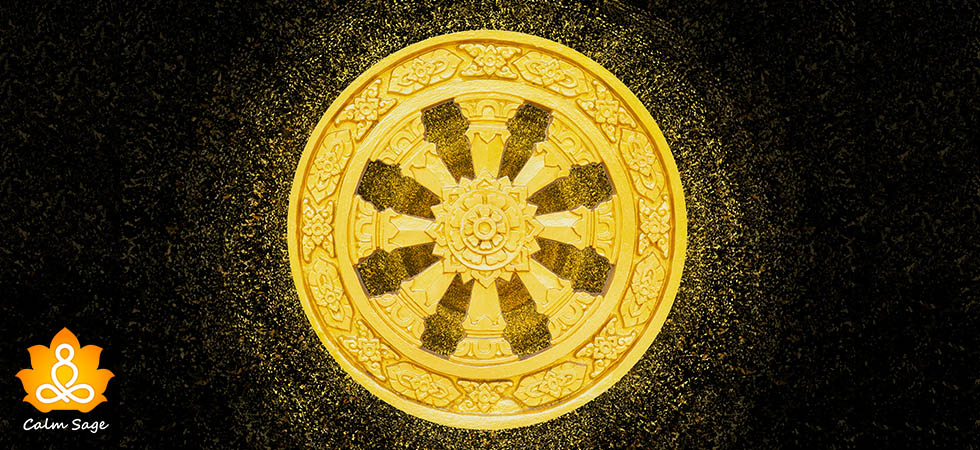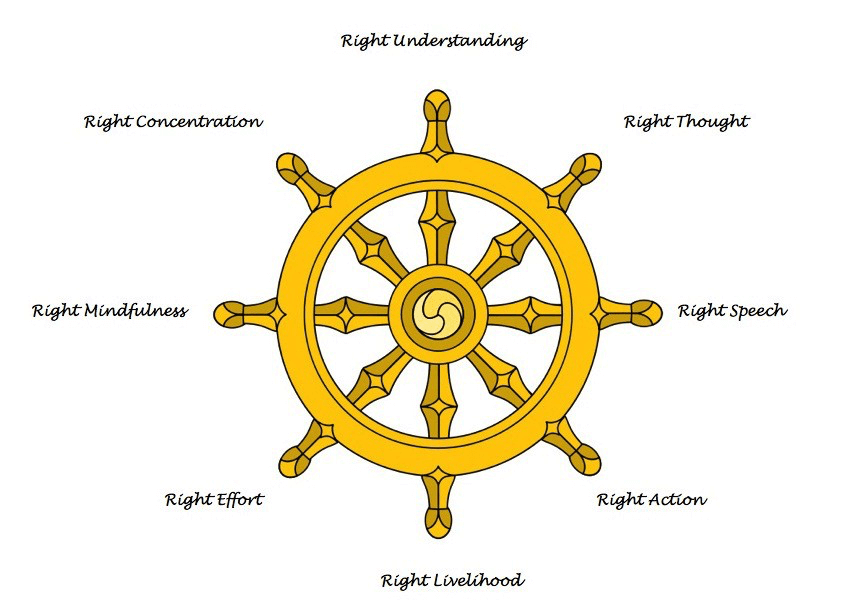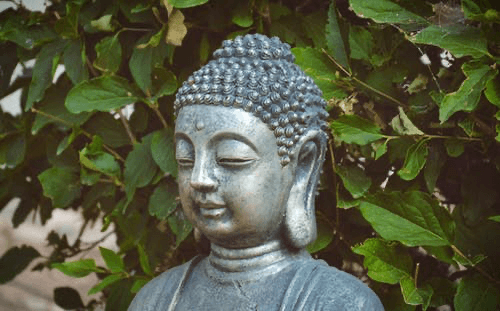Buddhist ‘Eightfold Path’ In Modern Times Is Exceptionally Motivating

I came across the teachings of Buddha and the noble Eightfold Path a few years ago and it had me changing my whole perspective of living a life. When I personally started implementing the learnings in my day to day life, somehow I began to forgive people, let the negative attitude go, started meditating and cheered up like never before.
Later, I wondered that how come we are still so distant from this Eightfold Path whose disciplines look simple yet are so powerful? Thinking about the same, I decided to write this blog here so you may also learn this beautiful section of holistic living and try incorporating it in reality.
This Eightfold Path is grouped under 3 elements of Buddhist practice that are Ethical Conduct (Right speech, Right action and Right livelihood), Mental Attention (Right effort, Right mindfulness and Right concentration) and Wisdom (Right Understanding & Right Thought). Before that, understand that there are four noble truth in Buddhism:
- The truth of suffering
- The truth of the cause of suffering
- The truth of the end of suffering
- The truth of the path that leads to end of suffering

Image source: Medium
The concept of Noble Eightfold Path belongs to the truth ‘The truth of the path that leads to the end of suffering’. All the paths are meant to minimize human sufferings and serve a way for peace and love around you. So let us find out the heart of Buddha’s teachings and their importance in modern life.
The Eightfold Paths Of Buddhism
1. Right Understanding (Samma Dhitti)
Also known as ‘Right Views’, this Buddha teaching is acknowledging the surroundings the way they are. One needs to observe and understand what they are seeing and their mind must be clear to grasp the knowledge. Accurate observation followed by a deep study constitutes the first of Eightfold Paths.
Implementation In Modern World
In my opinion, this path helps in becoming a good listener and being patient when learning a new subject, skill or simply paying attention to someone’s story. Many times, we are in such a hurry to push our views that we forget to understand the views of other people and their perspective. This path enlightens us to observe everything before reacting.
2. Right Thought (Samma Sankappa)
Right Thought or Right Intention gives an idea about looking at things with positive emotions. One must free themselves from desires, hatred, greed, violence, anger and other negativities which plays with our sense of judgement. The right thought comes only when we are selfless and full of love before making a decision.
Implementation In Modern World
Do you remember making a good decision when your heart was full of hatred or when you were very angry? If you do, ask yourself honestly was the decision great? There is a huge possibility that most of us would not agree with our old decisions in anger today. If you want to improve your thoughts, you must clear your mind either by writing journal entries or practicing mindfulness.
3. Right Speech (Samma Vaca)
Buddha principles or this branch of Eightfold Path preaches that one should not speak lie, harsh words, gossip, or ill of others. If we do not follow right speech, we either hurt others or get the relationships strained. Sometimes, we don’t know the right thing to say at a certain point. In such situations it is considered wise to hold your silence.
Implementation In Modern World
Whatever you speak shows your thoughts and level of understanding. So when we are angry, we should either stay quiet or reply politely without the harshness. Try recalling an old fight with a good friend or a family member, you might even recall the traces of poor speech and its effects on personal relationships even today. So, pledge to let the moments of anguish pass silently so that you don’t feel sorry later.
4. Right Action (Samma Kammanta)
Right action directly means ethical actions towards life in order to maintain harmony. One should abstain from being dishonest, disrespectful, adultery, stealing or destroying the life of people for their own means.
Implementation In Modern World
We can notice many personal relationships getting hampered because of lying to each other or breaking the trust by cheating the partner or doing mean things to hurt others. Similarly, being disrespectful to your own boss and dishonest to the company’s policy may count as a bad action and brings sadness amongst the hearts of many. Buddhist Eightfold Path always promotes moral and honorable conduct and we should follow the same, even in today’s life for a promising future.
5. Right Livelihood (Samma Ajiva)
This concept revolves around taking the right action for your livelihood or the way we earn the living. Work that involves lethal weapons, poisons, drugs or intoxicants or cheating must be avoided. You may even call that this path is an extension of Right Action. Buddha teachings say that anything that may be harmful to human health and their life does not constitute the right livelihood.
Implementation In Modern World
Although this path also states that one must abstain from killing animals, it allows one to consume meat only from those animals who were humanely raised and slaughtered. In today’s world, you may not be able to follow the path in a complete manner but to whatever extent you can follow, it is great for peace, humanity and ethical business practices.
6. Right Effort (Samma Vayama)
The noble path belongs to the group of mental discipline. It clearly delivers that one must stop thinking evil, be always enthusiastic for their goals and get rid of all the negative thoughts that have already arisen.
Implementation In Modern World
In today’s times, it is essential that we are mentally determined to keep our tasks at priority and must be fully motivated to complete them without procrastination. Right effort needs you to neither be too intense with your work nor taking it so flaky. A middle path with a clear mind is the right way, according to Buddha principles.
7. Right Mindfulness (Samma Sati)
Gautham Buddha taught that one needs to be aware of all the activities of the body, sensations, what is going in the mind and all the other ideas & thoughts. This mindfulness keeps our concentration intact and keeps us aware of our actions.
Implementation In Modern World
Imagine you are cooking with something else running in the head, would the dish you have prepared be tasty? Or you are driving thinking about something else, would you be able to concentrate on the highway? Probably, No. Mindfulness is an important attribute since the times of Buddha and still persists to that you can stay focused.
8. Right Concentration (Samma Samadhi)
This Eightfold Path talks about concentrating on your thoughts or practicing meditation. This helps in sharpening the brains and making us aware of ourselves and our surroundings in a better manner. Right concentration requires you to empty your mind and drop down all the negativities to maintain joy and happiness.
Implementation In Modern World
While we are rushing so fast every day, we often forget to look at the happiness hidden inside us. This is only possible when you begin to speak truth to yourself through meditation. Meditation develops your mind and makes you aware of all the sensations and feelings inside. For example, if you are confused about how to manage your personal and professional life, you can sit in peace for 15 minutes. A deep conversation with yourself will help you realize the important things and make good decisions. All the answers lie inside us, they just need to be unwrapped.
Following The Noble Eightfold Path?

I agree that Buddha teachings come from 4th Century B.C. and are way too old but I agree with most of them happily. Do you think that these teachings are good enough for a happy and great planet today? Will there be more love, humanity and peace? Will there be no wars or no drugs if each person begins applying these Buddha principles? If you believe so, share your views in the comment section below.
More Interesting Readings:
How To Be More Successful In Life?




















